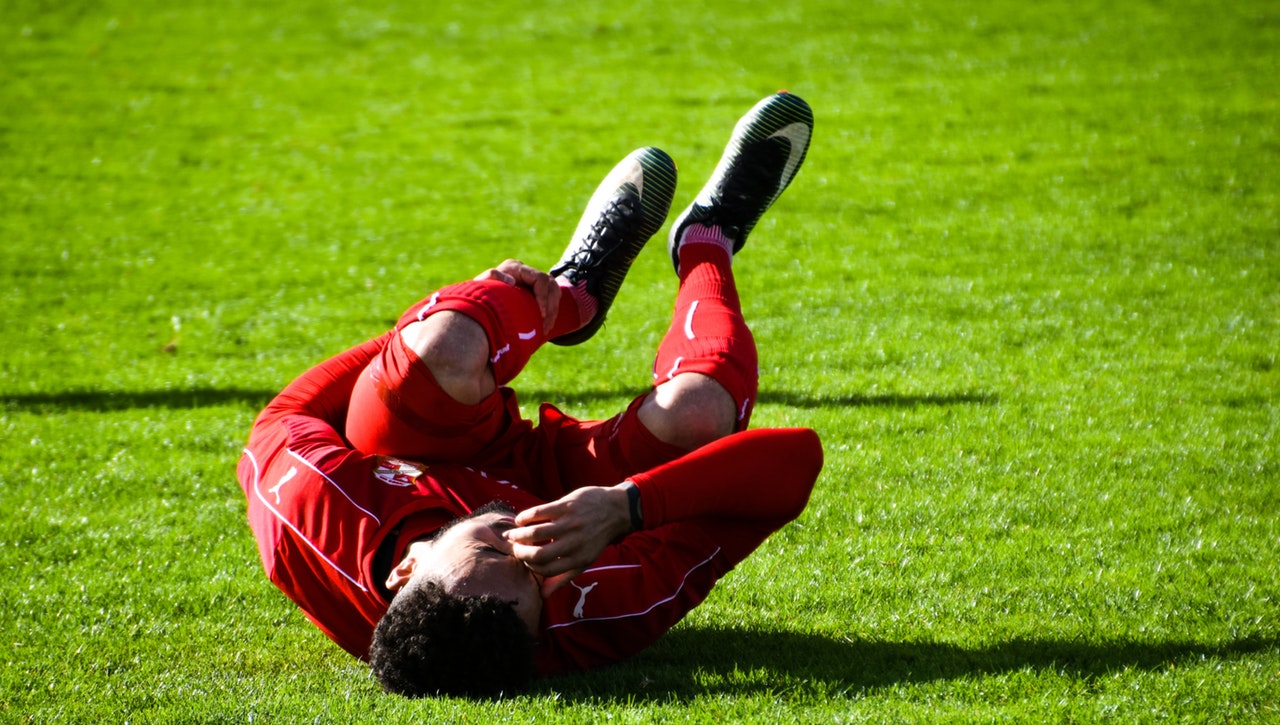As a player goes down with injury, we as physiotherapists are all well equipped to assess the pathology and initially manage the physical pain, but how much do we consider the mental anguish that is associated?
I am sure we are all aware of the 5 stages of grief (or the Kubler-Ross model): Denial, Anger, Bargaining, Depression and Acceptance. With the hard work that our players put into their training, for it to be taken away from them in an instant, you would think the player would enter a grieving process immediately.
As the person who is often first on the scene, I think it is important we consider this. When trying to gain as much information as possible out of our subjective questioning, if the player is in the denial or anger phase, the information we receive may be skewed or limited.
Particularly if prognosis is poor and the player is set for an extended stint on the sidelines, I think it is also vital that physiotherapists and other fitness staff involved consider the athlete’s mental health throughout rehab for better outcomes.
Often longer term injuries mean the athlete is limited in the amount of high intensity exercise they can do. For people who are so conditioned to push themselves to the edge physically, this can sometimes lead to a bit of a hole in their daily routines and affect their mental wellbeing as a result.
A study by Gulliver, et al 2015, titled “The mental health of Australian elite athletes” showed that injured athletes had higher levels of symptoms of both depression and generalised anxiety disorder.
Further studies have also shown that higher intensity exercise leads to decreased stress and depressive type symptoms (Gerber, et al 2014). It was also shown that increased exercise intensity leads to decreased pain levels and improved sleep patterns, which can lead to direct benefit for the athlete whilst in rehab.
Obviously there are others in the medical profession who are better equipped than us to deal with some of these mental health disorders, however this shows that we can play a role in reducing the incidence of these mental health issues throughout our rehab programming.
These ideas may also be important to consider in relation to injury prevention also. It has been found that questionnaires related to stress and sleep quality could help predict future injury in elite sportspeople (Laux et al, 2015). Again, as physiotherapists and strength and conditioning staff often have first contact with these players, and may have access to these screening questionnaires, it is important to consider the role that mental health stressors play on injury and be able to investigate further if required.
Hopefully this can all act as a reminder that when we are dealing with our athletes/patients, we are rehabilitating the person as a whole, not just the physical being.
Kubler-Ross, E. 1969. On Death and Dying.
Gerber, M. Brand, S. Herrmann, C. Colledge, F. Holsboer-Trachsler, E. Puhse, U. Increased objectively assessed vigorous-intensity exercise is associated with reduced stress, increased mental health and good objective and subjective sleep in young adults. Physiology & Behaviour, 2014.
Putukian, M. The psychological response to injury in student athletes: a narrative review with a focus on mental health. British Journal of Sports Medicine, 2018.
Laux, P. Krumm, B. Diers, M. Flor, H. Recovery–stress balance and injury risk in professional football players: a prospective study. Journal of Sports Sciences, 2015.

